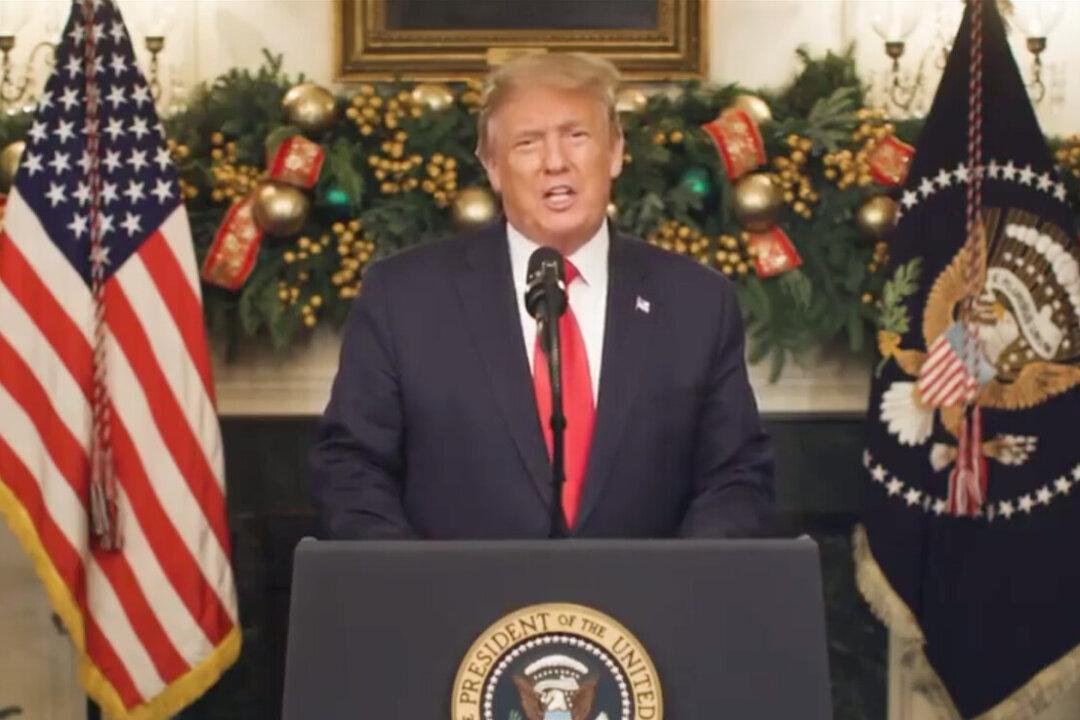President Donald Trump forced the months-long pandemic relief saga into overtime on Dec. 22 with the surprise release of a video statement in which he derided the mammoth spending measure’s “wasteful” provisions for foreign governments and demanded more money for American taxpayers.
The president didn’t use the word “veto,” but all but implied he would block the bill unless Congress removed billions in spending allocated to foreign nations and domestic institutions unrelated to the battle against the CCP virus, commonly known as the novel coronavirus. Trump called for $2,000 payments for individual taxpayers, up from the $600 approved as part of the $2.3 trillion omnibus spending bill.





